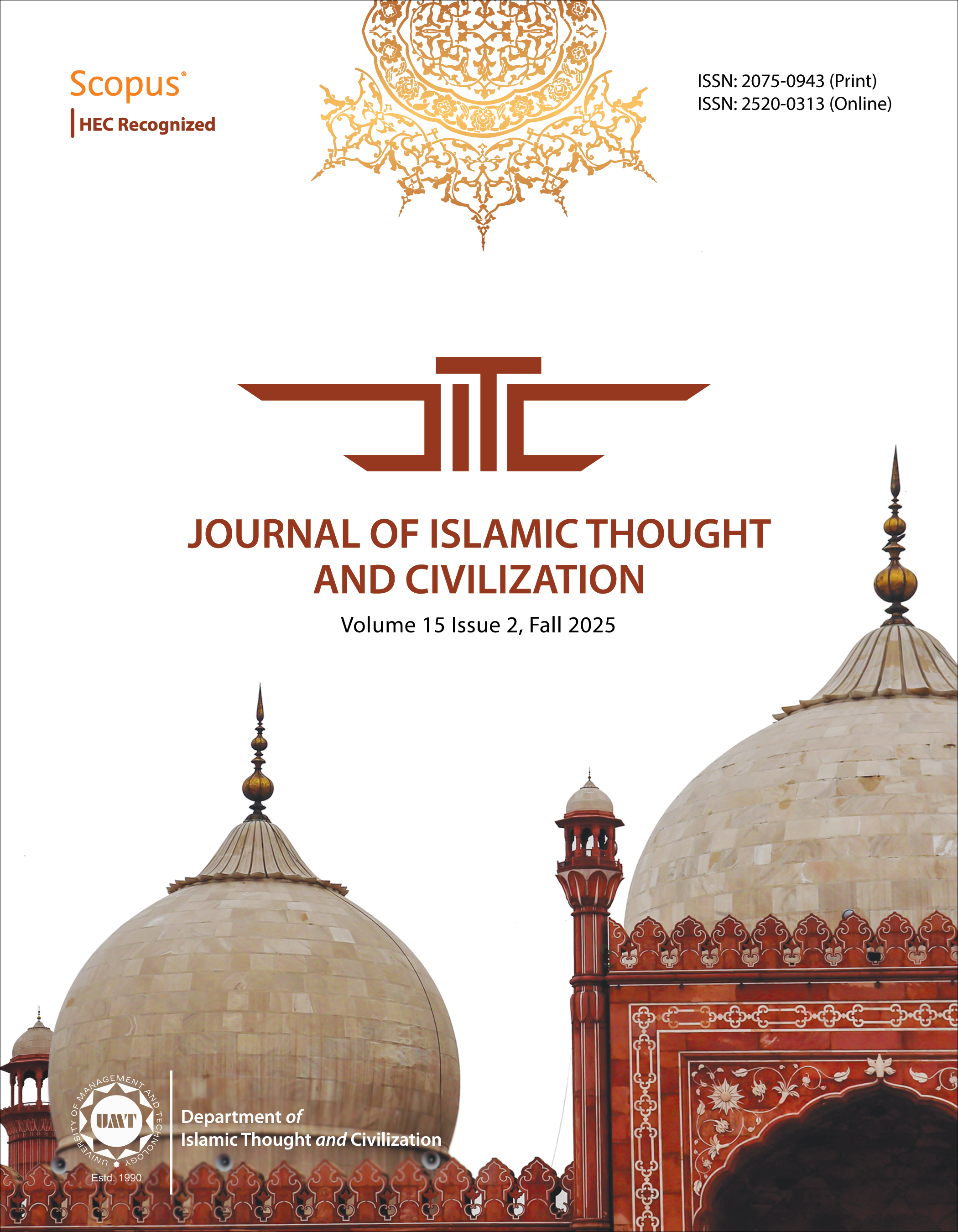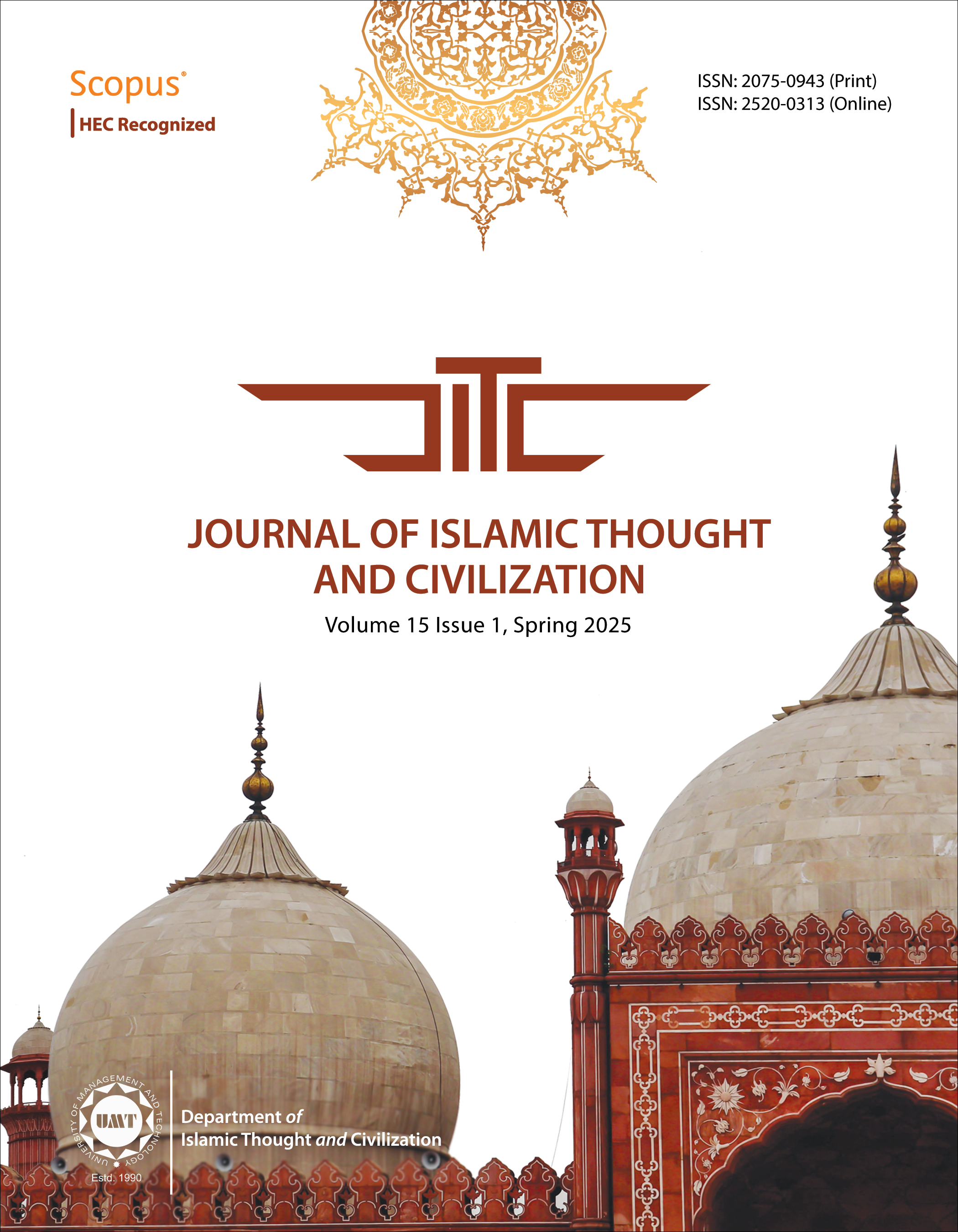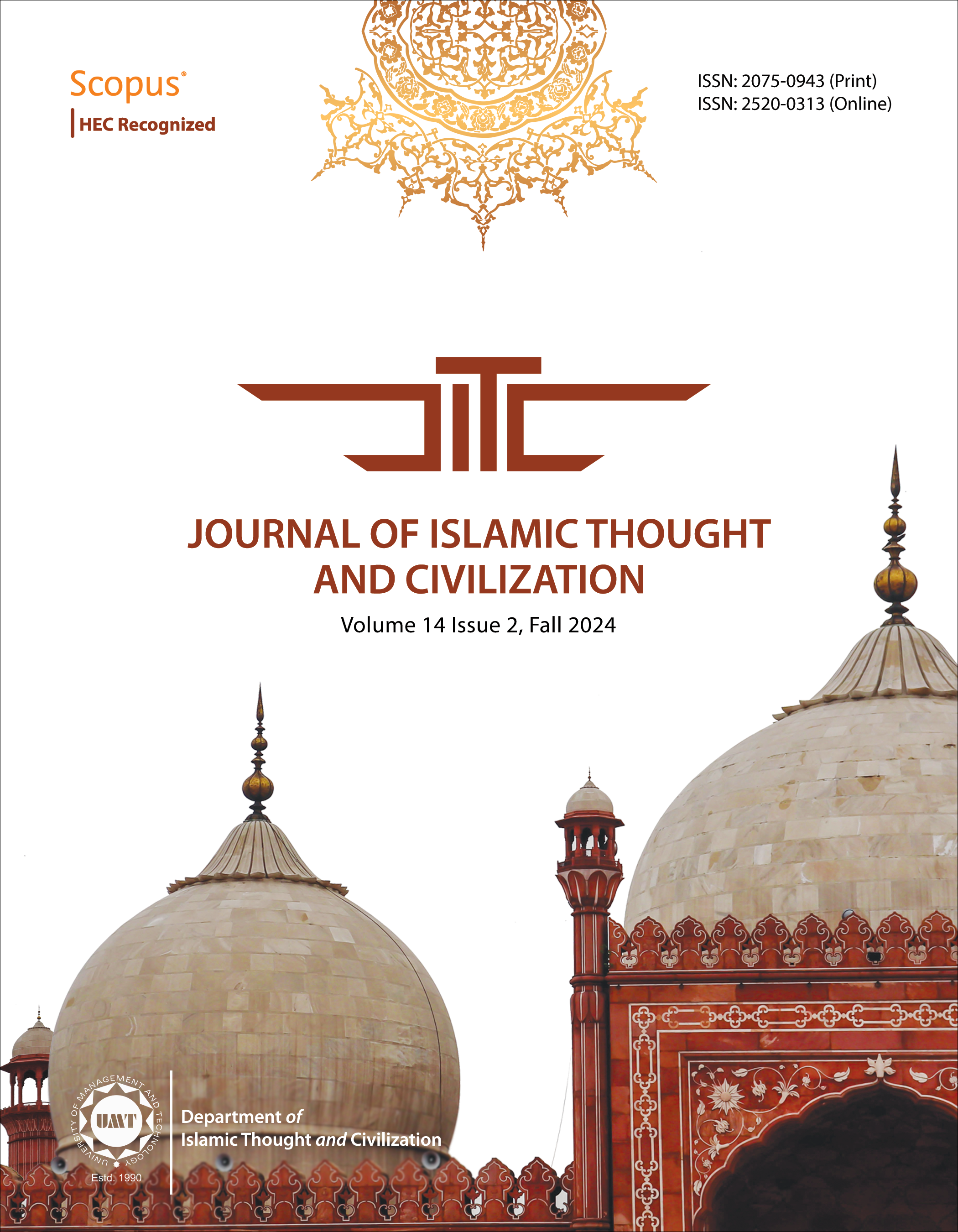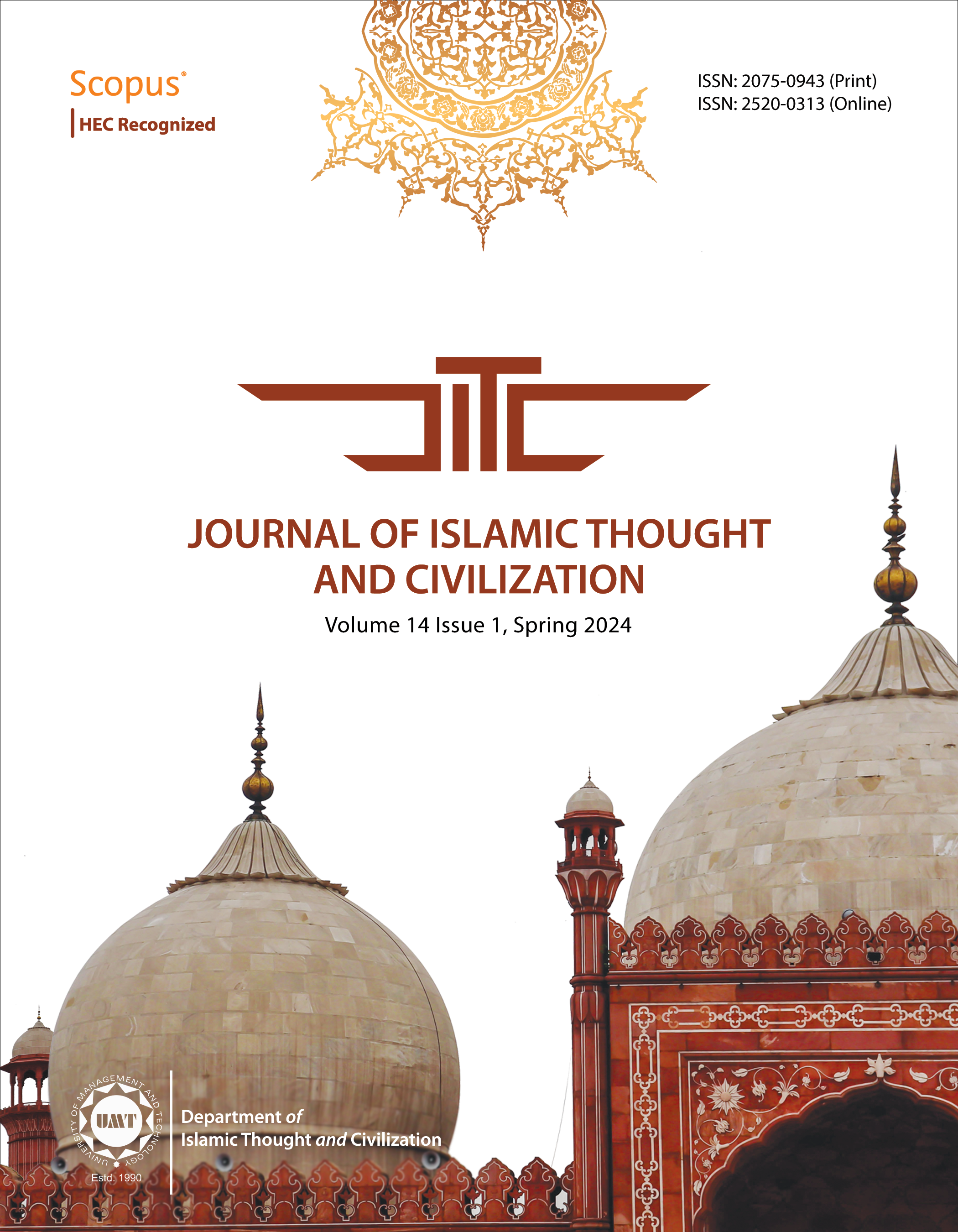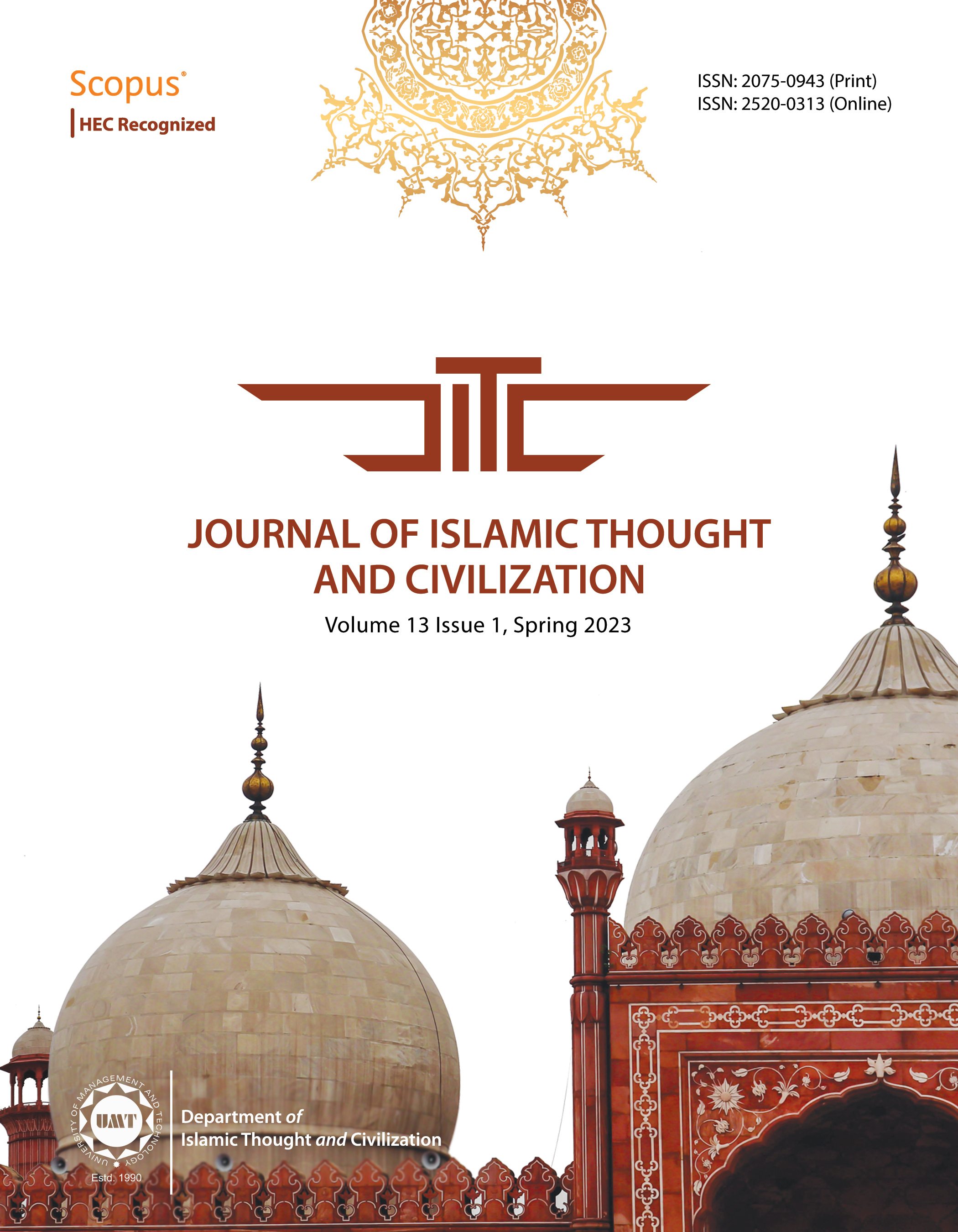-
 Fall 2015
Vol 5 No 2
Fall 2015
Vol 5 No 2This issue of the Journal of Islamic Thought and Civilization brings to bear the impact of the Revolutionary philosophy of Dr Ali Shariati to the baseless accusations of Bernard Lewis on Islam and its contested relationship with slavery. We also hope to expand upon the illuminating discourse of Muhammad Asad’s approach to the Shariah. It also covers the relationship between man in the roles of both, in a position of leadership that was exemplified in the character of the Prophet (SAW) and in relation to the environment.
-
 Spring 2015
Vol 5 No 1
Spring 2015
Vol 5 No 1This issue of the Journal of Islamic Thought and Civilization focuses largely on the financial and economic aspects of the Islamic tradition and development. An array of contemporary financial issues in the light of Islamic thought like the role that Islamic Finances can play in Sustainable development, the relationship between worship and the importance of attaining a halal income and wealth and poverty in the relation to Islamic teachings. We also explore the work and teachings of Dr Ismai’il Raji al Faruqi and his contribution to the Islamization of knowledge.
-
 Fall 2014
Vol 4 No 2
Fall 2014
Vol 4 No 2This issue of the Journal of Islamic Thought and Civilization brings you a wide range of engaging articles of importance that pertain to current events in the Muslim world including a glance at the role of reformers in the Middle East like Muhammad Abduh and Said Nursi to the evolution of religious education over the past few decades in Pakistan. We also explore the impressive architectural heritages of the mosques of Lahore to the Al-Jami‘al-‘Atiq Mosque in Jidda. The editors of this issue have taken pains to incorporate articles for serious scholars and the enlightened general reader. In the present issue, we also hope to shed some light on the issue of Women’s empowerment through housing microfinance in Pakistan.
-
 Spring 2014
Vol 4 No 1
Spring 2014
Vol 4 No 1From the rich treasures of Dagestani manuscripts at Princeton and a crash course on historiography to current developments gripping the Muslim world, this issue of the Journal of Islamic Thought and Civilization is noticeable for the diversity of topics covered. While compiling this issue, the editors have taken care to include articles that are likely to arouse the interest of the general reader as well as the serious scholar. So the insight into the Arab Spring or the recent controversy surrounding the visual depictions of the Prophet Muhammad (SAW) will be read with special interest. The critique on Orientalism and cultural hybridity in colonial India will evoke strong interest as many among us still identify with the ramifications of both.
The focus of the JITC has always been broad based, encompassing myriad facets of the Islamic Thought and Civilization because the subject itself is vast and largely unexplored. It is our mission to devote our energies towards exploring it. -
 Fall 2013
Vol 3 No 2
Fall 2013
Vol 3 No 2The diverse range of articles that comprise this issue of the Journal touch upon issues that affect the Muslim communities in this life as in the hereafter. Drawing upon knowledge gleaned from scholars across the world and in Pakistan, the editors have made an attempt to bring to the limelight pressing issues - such as Islamic economics and distribution of estates in Nigeria to religious dialogue, the concept of evil, and bridging the gap between religion and the modern sciences - to name a few. It is sincerely hoped that the readers would benefit from the scholarly endeavors and painstaking research conducted by the contributors.
Response Time
Official Working Days: Monday to Friday, 9:00AM - 5:30PM (GMT+5)
E-mail Response Time: 10 Working Days
Desk Review Decison: 15-20 working days
Average Time to Peer Review: 4-6 months
Average Time to Publication: 1 Year
Editor-in-Chief: Prof. Humaira Ahmad
ISSN (E): 2520-0313
ISSN (P): 2075-0943
Publication Frequency: Bi-annual
Review Type: Double Blind peer Review
Publication Fee:
1000USD (for International Authors)
100,000PKR (For Local Authors)
Abbreviated Key Title: J. Islam. Thought & Civiliz.
Parallel Title: JITC
Area of Publication: Islamic Civilization and related themes
History

Religious Studies

Cultural Studies

Sociology and Political Science


Journal of Islamic Thought and Civilization by School of Social Sciences & Humanities, University of Management and Technology (UMT) is licensed under a Creative Commons Attribution 4.0 International License.

